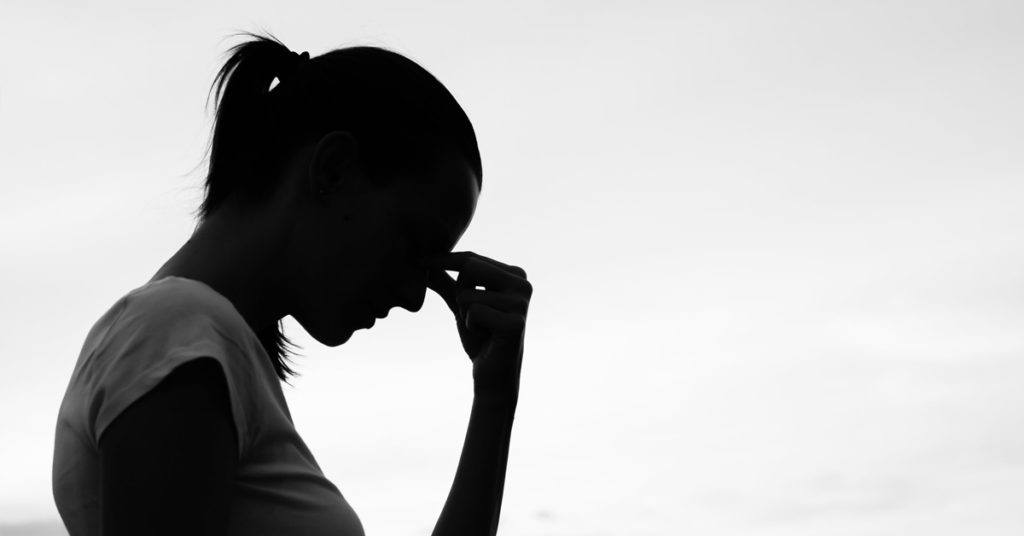Do You Have Suicidal Thoughts this Pandemic?

Introduction
Suicidal thoughts are one of the mental health challenges that have been endured by some people. This is to be expected from what is happening worldwide due to COVID-19 pandemic. Occurrences of this self-annihilation ideation may be accountable as a result of psychological disorders or in some instances, a low self-coping mechanism.
Cause, Symptoms and Other Things to Know
According to the World Health Organization (WHO), “suicide is the second leading cause of death among 15-29 years old globally.” The National Center for Mental Health (NCMH) in the Philippines also disclosed an upsurge in receiving hotline calls concerning depression, from 80 calls before lockdown to approximately 400 calls every month, during quarantine implementation by the health authorities.
Suicide has been defined by American Psychological Association as, “the act of killing yourself, most often as a result of depression or other mental illness.” Suicide from a depressive state typically entails from unforeseeable circumstances that had happened in their lives such as a loss of a loved one, identity crisis, a lingering bodily illness, break-up from a romantic relationship, financial difficulties, physical violence, emotional and sexual exploitation, rejection, conflict, discrimination, and a lack of purpose in life. Suicide from the perspective of a mental illness is linked to an etiological factor like a strong family history of a mental disorder. A study from The Lancet, a peer-reviewed medical journal, revealed that people “who had a mother, father, or sibling die from suicide were two and a half times more likely to commit suicide themselves compared with those without a similar family history.” Several mental disorders are already been associated to suicide namely, schizophrenia, bipolar disorder, post-traumatic stress disorder (PTSD), borderline personality disorder, and some external factors that have originally been the cause, but later on discovered to also take effect in mental illness which comprises substance abuse and being in an LGBT community.
Notable signs of suicidal tendencies include random remarks to commit suicide, difficulty in eating or sleeping, alcohol or drug abuse, flat affect, little to no interest in doing pleasurable activities, avoiding social interactions, an extreme behavior change, and preoccupied with the idea of death and dying. However, a solid evident feature for suicide leads from a history of suicide attempts. When all these sources are left untreated, whether caused by a depression or a mental illness, a higher probability of turning suicidal thoughts into action is very much expected to occur.
How to Prevent Suicidal Thoughts
As strict quarantine measures have been applied in the community, it is apparent that the increasing number of suicidal thoughts transpiring in the present are more likely caused by the movement restraints, not only by the exterior regulations of our environment, to name job limitations and travel restrictions a few, but also on a personal level whereas close family ties as a Filipino trait including family reunions for an instance, have been temporarily averted. On the other hand, triggers on the mental illness state are also prevalent. For these reasons, how can we achieve a well mental state of being to prevent suicidal thoughts in this time of pandemic? Suicide Awareness Voice of Education (SAVE) recommended the following advices:
Have meaningful social connections. Social connections are still possible through different social media platforms. Take into consideration to aim for quality and meaningful relationships even though the quarantine guidelines are strictly implementing social distancing as a part of COVID-19 preventive measures. A family time provides an environment of security, love and support. In addition, communicate with trusted friends and reliable mentors who can journey with you in life with no judgments.
Get involved with new hobbies or reconnect with old hobbies. Take note and engage on all pastimes and recreations you love. On top of old hobbies, discover something new. Never be afraid to try other activities if passion has not been met the first time. The quest for a new hobby relieves stress, builds self-confidence, increases personal satisfaction and a way to meet new people even online.
Give back to your community. A sense of volunteerism gives a sense of purpose and compassion for others that makes us feel good. Kindness stations and community pantries are now trending in most places as various donations are given to people who are in need. Charitable activities offer a spirit of camaraderie and a helping hand for one another. As the servant says, “The ministry saves the minister”, so as “Healing heals the healer, too” quoting from a book title –that it is possible for someone with suicidal thoughts to be an instrument of healing for the poor.
Practice self-care. Taking care of ourselves gives value for our physical and mental health. Some ways for self-care consist of engaging in a healthy lifestyle of eating well and enough exercise, giving time for self-reflection, setting realistic goals, and asking help from others whenever needed. As stated in the concept of Maslows Hierarchy of Needs, physiological needs should be met first before attaining other psychological needs of safety, love, esteem and self-actualization.
Conclusion
The World Health Organization (WHO) advocates restricting access to suicidal means by working closely with the media for responsible reporting. We can start with developing coping skills particularly with the young people, and early identification and management of suicidal attempts. Primary prevention of suicidal thoughts through mental health awareness and proper education can save lives. If you feel like wanting to commit suicide, you may consult a psychologist at Mypocketdoctor through their Facebook page and/or chat with their agents on their website www.mypocketdoctor.com. Likewise, you may check the Frequently Asked Questions (FAQs) through this link.
References:
https://www.who.int/philippines
https://www.apa.org/topics
https://www.webmd.com/mental-health
https://save.org/about-suicide
